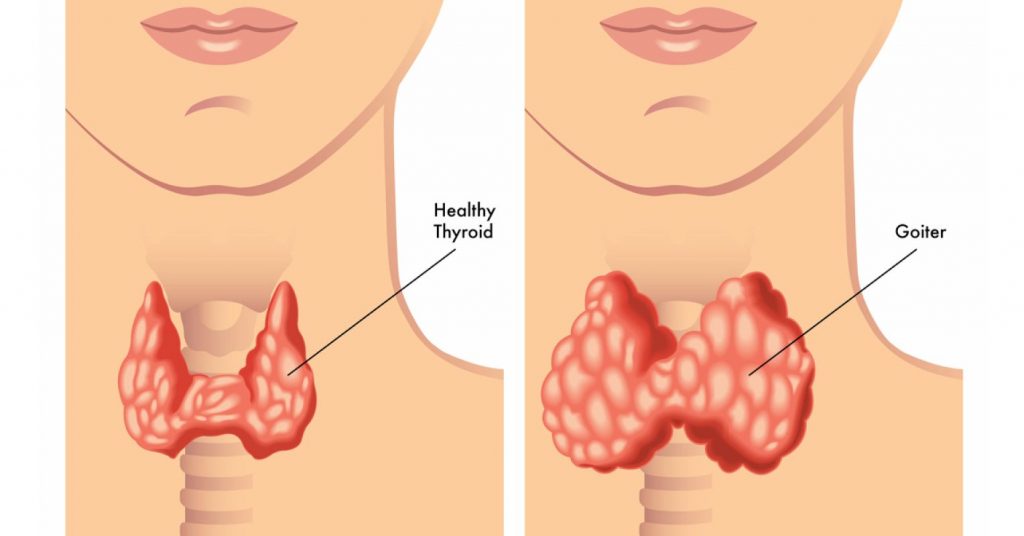What is Hypothyroidism?

Hypothyroidism (or underactive thyroid) refers to a condition whereby the thyroid gland does not produce sufficient quantities of the thyroid hormone to meet the body’s needs.
Although hypothyroidism is quite common, most sufferers only suffer from what is known as sub-clinical hypothyroidism (mild). Only a tiny percentage of people have full-blown (overt) hypothyroidism.
Anyone can suffer from hypothyroidism, but it affects females more than males, particularly those of 50 years and above.
What Does The Thyroid Gland Look Like?
The thyroid gland can be found in the front of the neck. It is relatively small and shaped like a butterfly. The hormones it produces, thyroxine (T4) and triiodothyronine (T3), play a significant role in controlling and stimulating vital functions throughout the body.
The Diagnosis of Hypothyroidism
If hypothyroidism is left untreated, it can cause serious health problems.
It is, however, relatively easy to diagnose whether or not someone has a thyroid disorder. The patient is asked to provide a blood sample which is then tested to see how much of the thyroid hormone thyroxine (T4) and the thyroid-stimulating hormone (TSH) are present.
Further tests designed to check for cholesterol levels and antithyroid antibodies may also be carried out if your doctor feels necessary.
The results of these tests will be assessed, and a decision will be made as to whether you are to be prescribed medication or to have your condition monitored at regular intervals (ordinarily six-monthly or yearly).
Treatment of Hypothyroidism
It is generally accepted that prescription drugs are unlikely actually to cure a patient’s hypothyroidism. They are administered primarily to regulate hormone levels artificially.
One of the most common drugs prescribed to hypothyroidism patients is called levothyroxine which is simply a synthetic thyroid hormone.
Anyone taking levothyroxine must make their doctor fully aware of any other medication they may be taking. Some drugs can affect the potency (increase or decrease) of the levothyroxine you have been prescribed.
In addition, it is may also be worth considering making some changes to your diet to reduce the amount of fiber consumed, as eating a high fiber diet may result in you requiring a higher dose of levothyroxine.
Factors That Can Affect Your Likelihood Of Suffering From Hypothyroidism
Whether you suffer from an underactive or overactive thyroid can, in some instances, be traced back to your genetics. However, it does not mean that if your parents do not suffer from a thyroid disorder, you will not either. In many cases, it has been found that the condition can skip a generation, and it could be the grandparents of the sufferer who passed on the gene.
Lifestyle can also be influential in determining how susceptible you may be to contracting a thyroid disorder. Smoking can, for example, can significantly increase your risk of having thyroid problems.
Trending Health Topics
- ADHD
- Allergies
- Arthritis
- Bipolar Disorder
- Bunions
- Car Accidents
- Chron's Disease
- Common Cold
- COPD
- Depression
- Dry Skin
- Dry throat
- Eczema
- Fungal Infection
- GERD
- HIV/AIDS
- Hypertension
- Irritable Bowel Syndrome (IBS)
- Multiple Sclerosis
- Osteoarthritis
- Psoriasis
- Rheumatoid Arthritis
- Skin Disorders
- strep throat
- Type 2 Diabetes
- Uncategorized